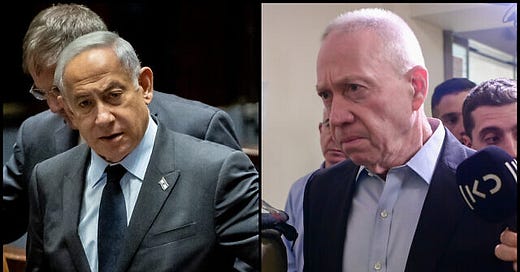The case against Israel is built on lies
Our amicus curiae brief to the International Criminal Court
The International Criminal Court continues to beclown itself with a farcical case against Yoav Gallant and Benjamin Netanyahu. It is now plain that any western country aspiring to retain a war fighting capability must withdraw from the Treaty of Rome and the ICC’s jurisdiction. The international rules-based order is dead. It has been subverted and weapo…



